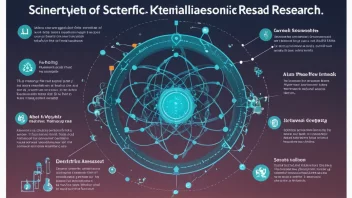As the world grapples with climate change and the pressing need for sustainable energy solutions, renewable energy research is at the forefront of scientific discovery. This field encompasses a wide range of technologies and methodologies aimed at harnessing natural resources to produce energy while minimizing environmental impact. In this article, we will explore key trends in renewable energy research, highlight significant breakthroughs, and discuss the implications for our future.
One of the most promising areas of renewable energy research is solar power. Recent advancements in photovoltaic technology have led to the development of more efficient solar panels that can convert sunlight into electricity with greater efficacy. Researchers are now exploring materials like perovskite, which have shown potential to outperform traditional silicon-based panels. This shift could drastically reduce costs and increase the accessibility of solar energy for households and businesses alike.
Wind energy is another sector experiencing rapid innovation. Offshore wind farms are becoming increasingly popular, with larger turbines capable of generating more power being deployed. Recent studies indicate that harnessing wind energy in deeper waters could significantly boost overall energy output. Furthermore, researchers are investigating ways to mitigate the environmental impact of wind energy, such as developing quieter turbine designs and improving wildlife protection measures.
Energy storage technology is also crucial for the future of renewable energy. As we transition to a more renewable-based energy grid, the ability to store energy for use during peak demand times becomes essential. Breakthroughs in battery technology, particularly lithium-sulfur and solid-state batteries, promise to provide longer-lasting and more efficient energy storage solutions. These advancements will enable renewable energy sources to be more reliable and integrated into our daily lives.
In addition to technological advancements, interdisciplinary approaches are gaining traction in renewable energy research. The integration of social sciences, economics, and environmental studies is crucial for understanding the broader implications of energy policies and technologies. Research into consumer behavior, policy frameworks, and economic incentives can help shape a more sustainable energy future by ensuring that renewable technologies are adopted widely and effectively.
As we look to the future, the role of governmental and private sector investment in renewable energy research cannot be overstated. Funding for research initiatives and the development of new technologies will be pivotal in driving innovation. Collaboration between academia, industry, and policymakers is essential to overcome the challenges that lie ahead.
In conclusion, renewable energy research is a dynamic and rapidly evolving field that holds the key to a sustainable future. From solar and wind advancements to innovations in energy storage and interdisciplinary approaches, the research landscape is brimming with potential. As we continue to explore these frontiers, it is clear that the commitment to renewable energy will play a crucial role in combating climate change and ensuring a cleaner, greener planet for generations to come.






